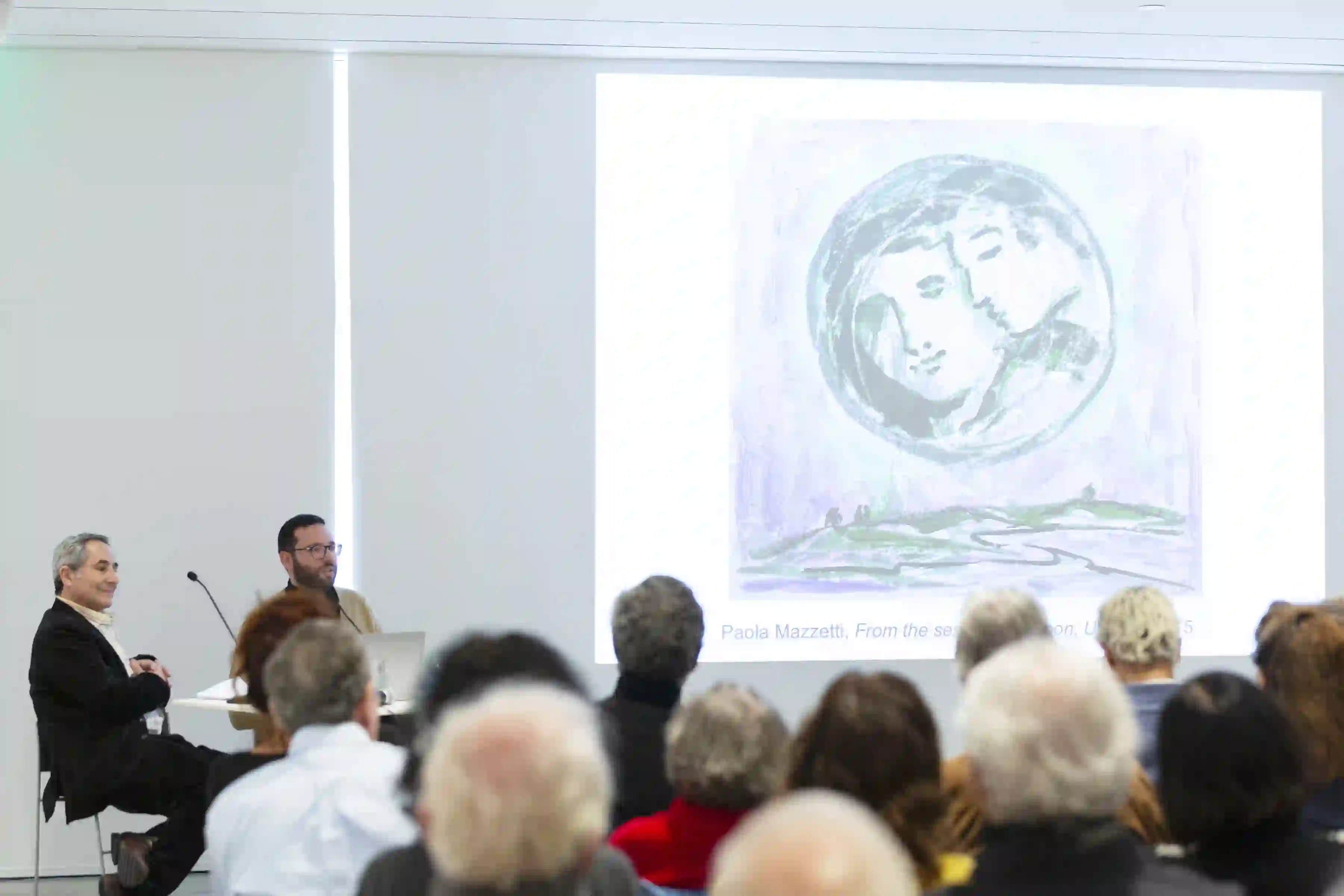Magazzino Italian Art, in collaboration with the Centro Primo Levi in New York, presented Art After War, a program spotlighting the resilient legacy of the Mazzetti sisters. Born in Rome in 1927, Paola and Lorenza Mazzetti witnessed the murder of their adoptive family—the Jewish cousins of scientist Albert Einstein— in August 1944, an event that profoundly shaped their artistic journey. Their lives became a testament to resilience and an exploration of trauma through a diverse range of creative expressions encompassing painting, filmmaking, writing, and psychoanalysis.
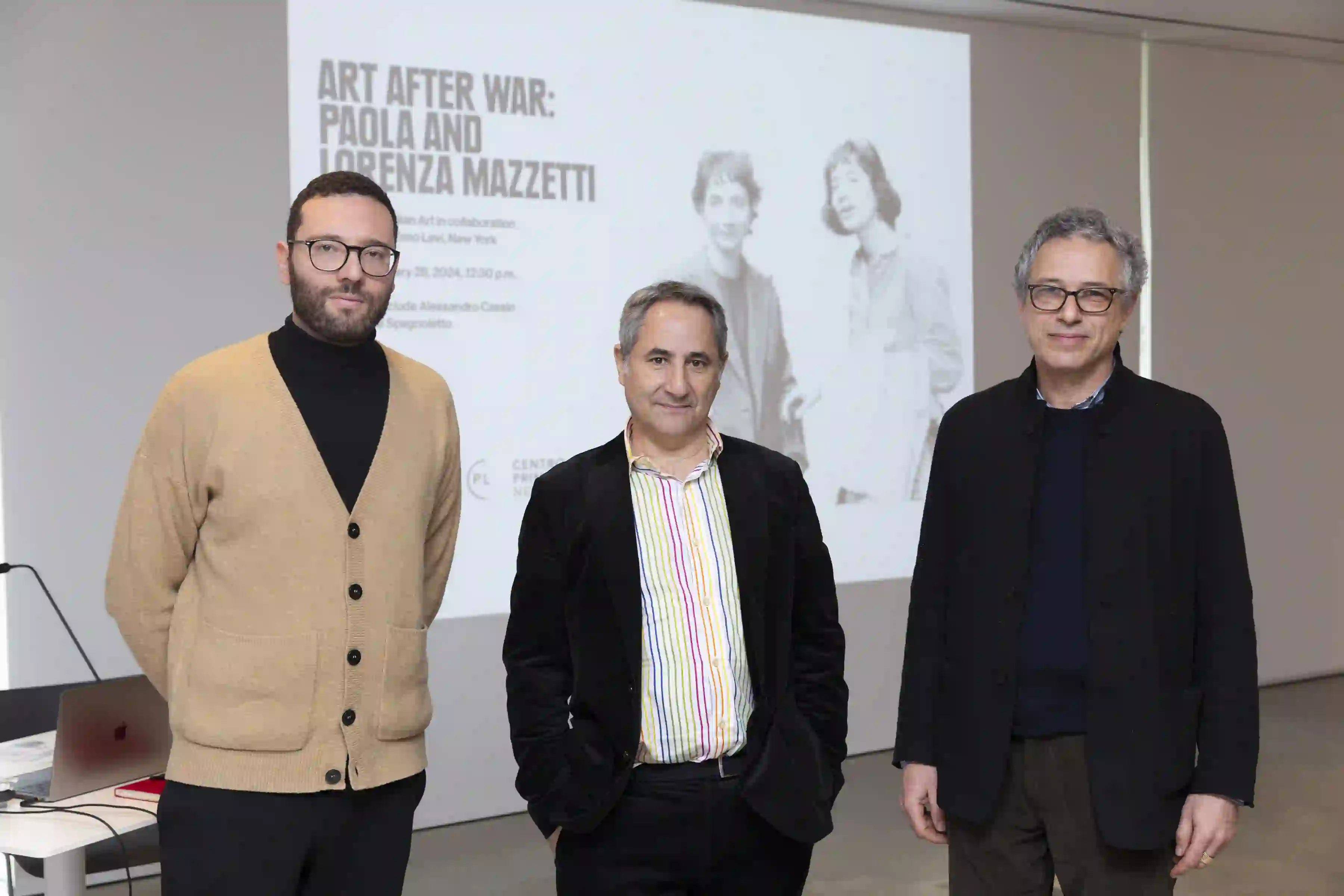
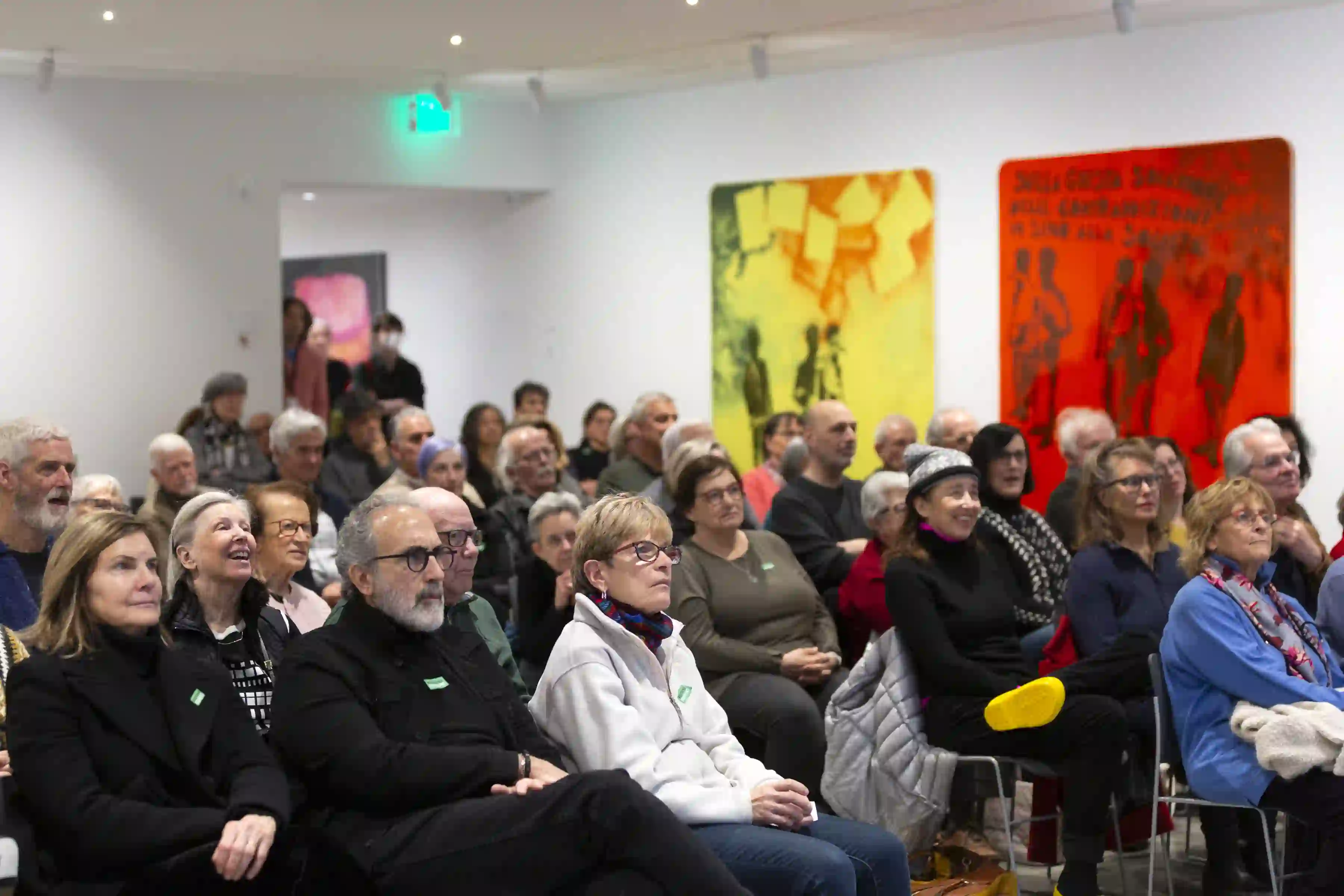
The event was in commemoration of the Giornata della Memoria—the International Holocaust Remembrance Day—observed every year on January 27th and was part of a joint project with other Italian institutions in N.Y. The program at Magazzino serves as a tribute to the twin sisters’ profound artistic impact. Speakers Alessandro Cassin and Davide Spagnoletto provided insight into the parallel artistic practices of Paola and Lorenza and how art became a means of navigating a society still influenced by the traumatic events of war and persecution.
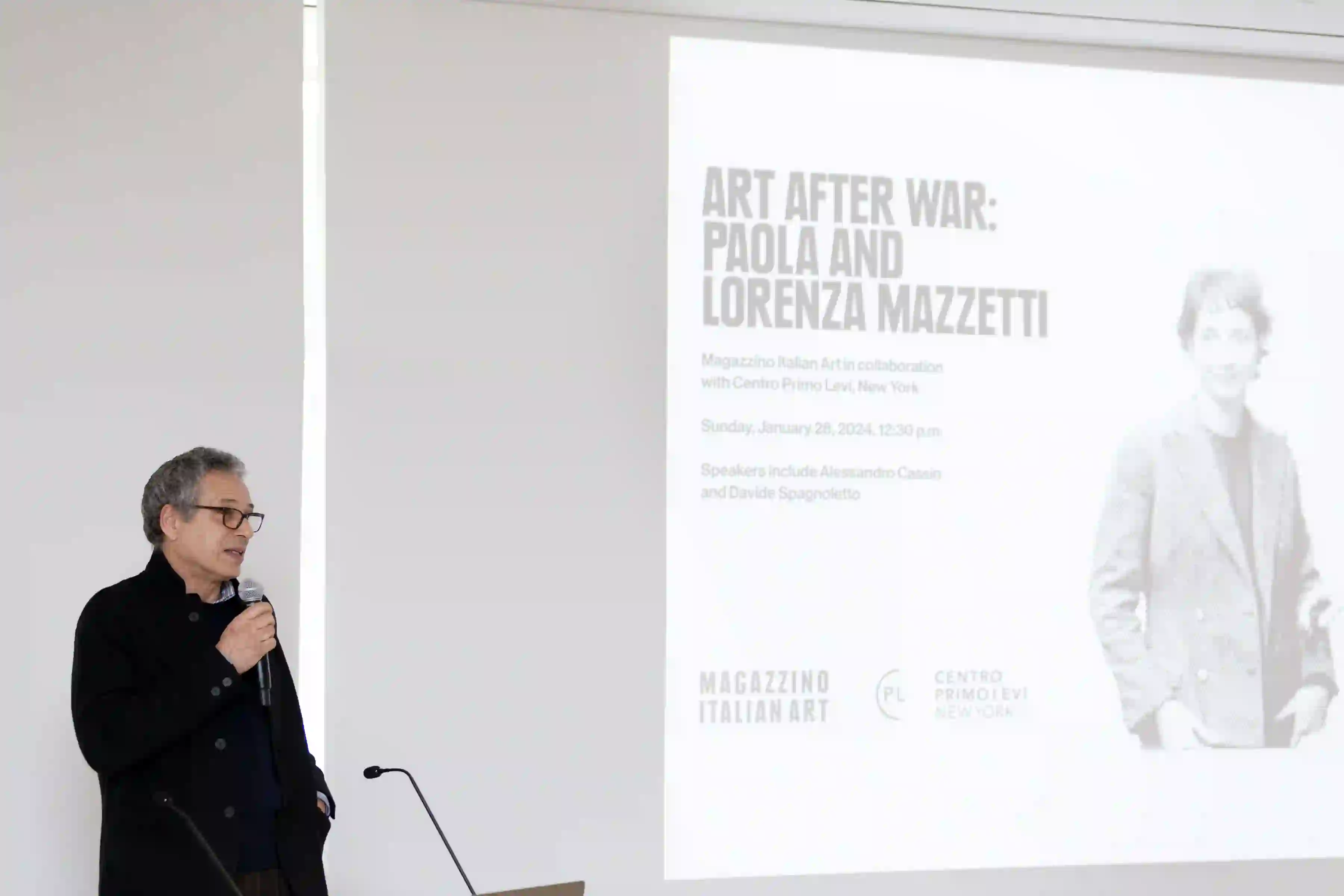
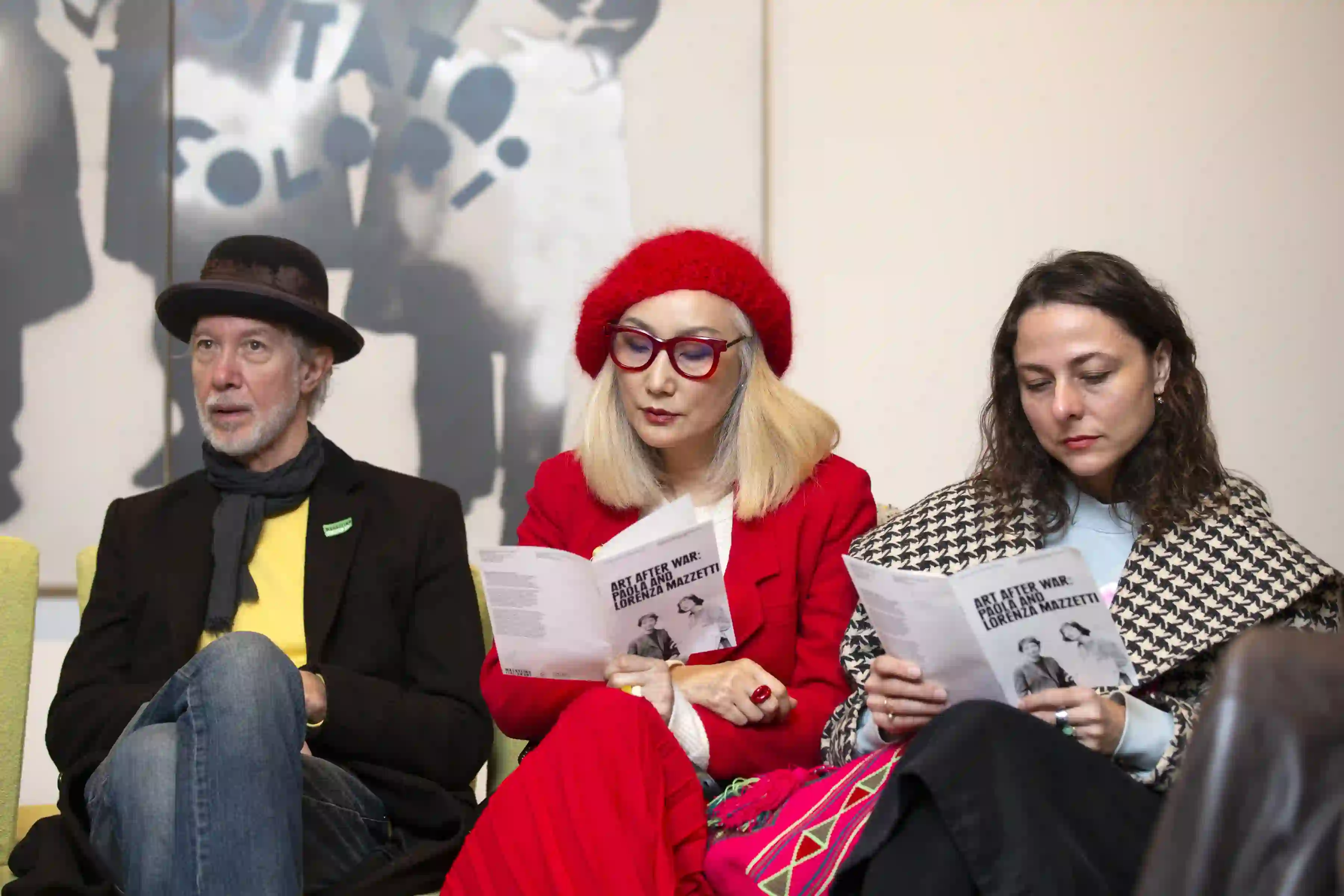
A key element of the program delves into the concept of the double image, a prominent trope in 20th-century art. Paola and Lorenza’s artworks offer a nuanced perspective on memory, inviting viewers to explore the interplay between sameness and difference, both in their art and in their reflections on memory itself.
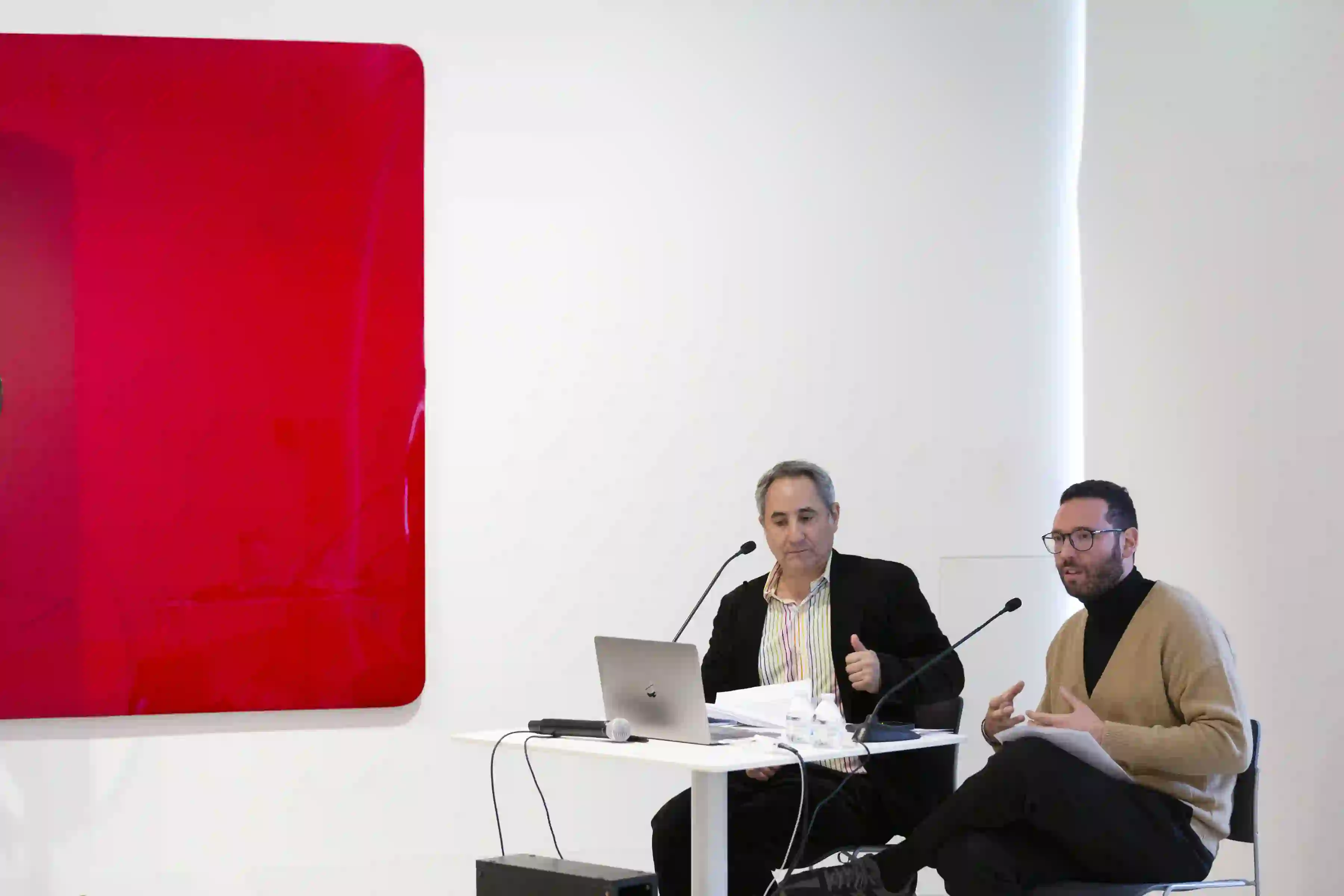
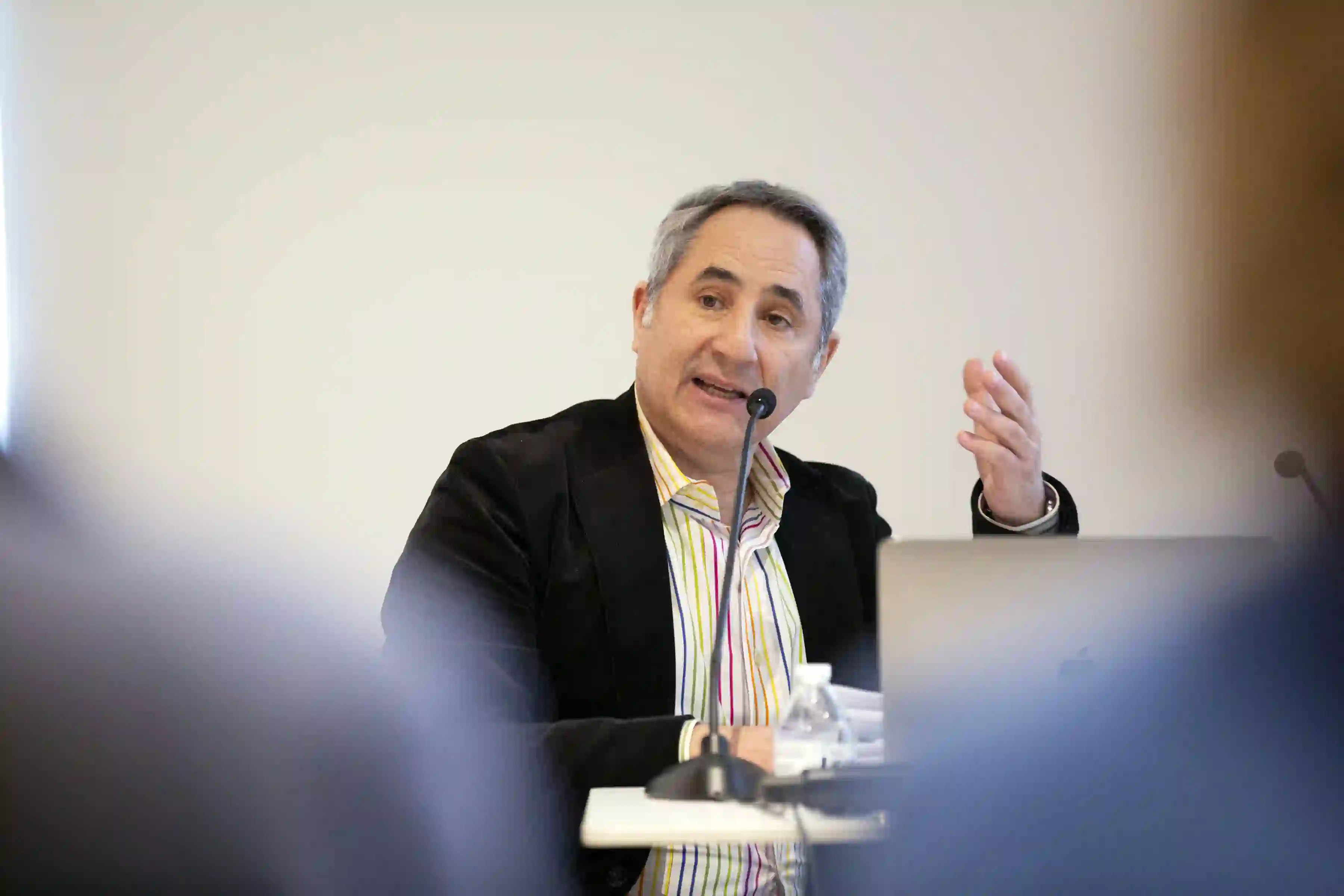
The discussion was accompanied by slides featuring the sisters’ paintings, drawings, photographs, excerpts from their films, and video interviews, allowing attendees to immerse themselves in the poetic worlds created by Paola and Lorenza Mazzetti. Additionally, the program featured video and images from the Memoriale della Shoah in Milan, showcasing Eva Krampen Kosloski’s touching photo exhibition. The evocative photographs by Kosloski, daughter of Paola Mazzetti and niece of Lorenza Mazzetti, portray the sisters’ poignant return to their childhood places and subtly captures their methods of transmitting memory.
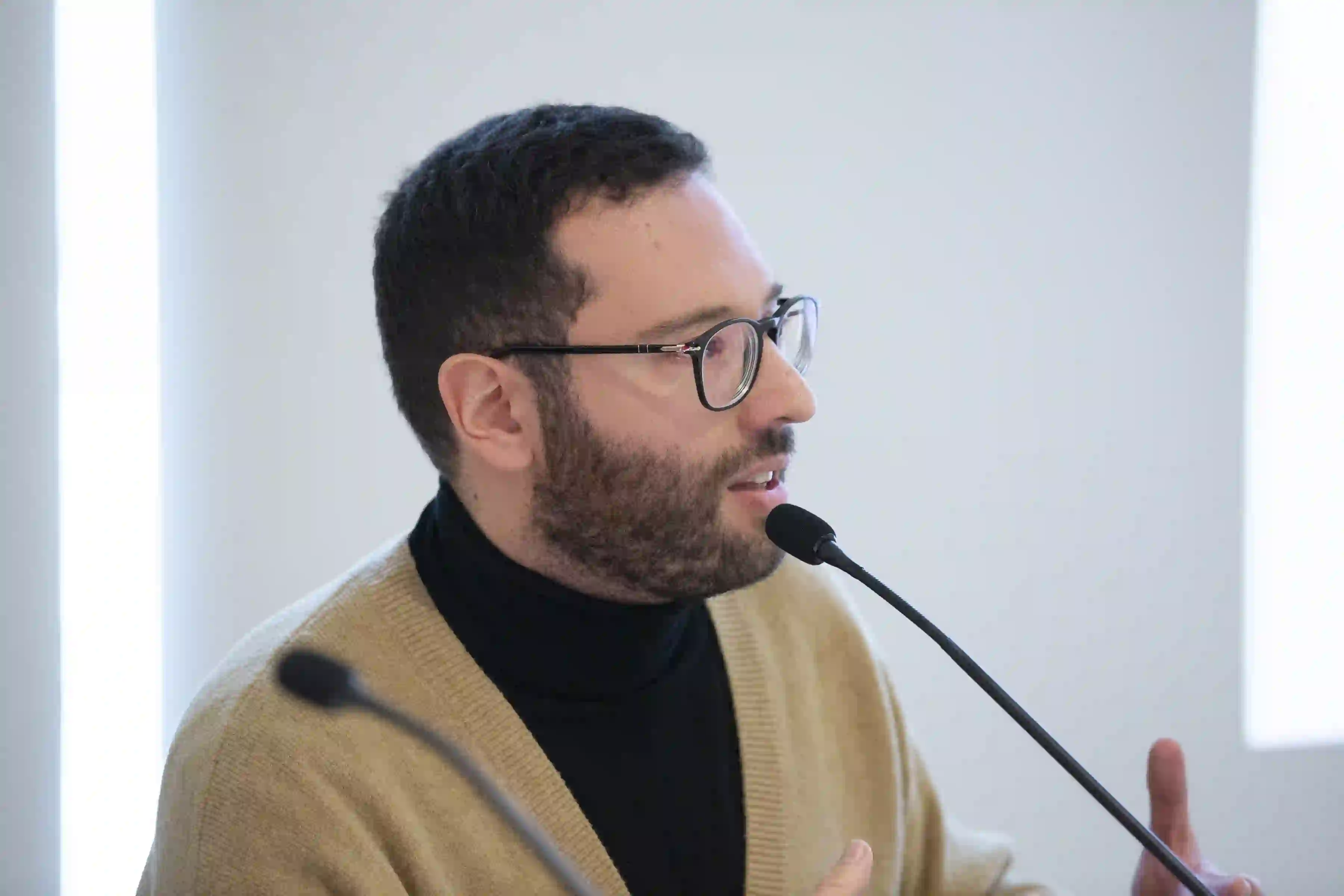
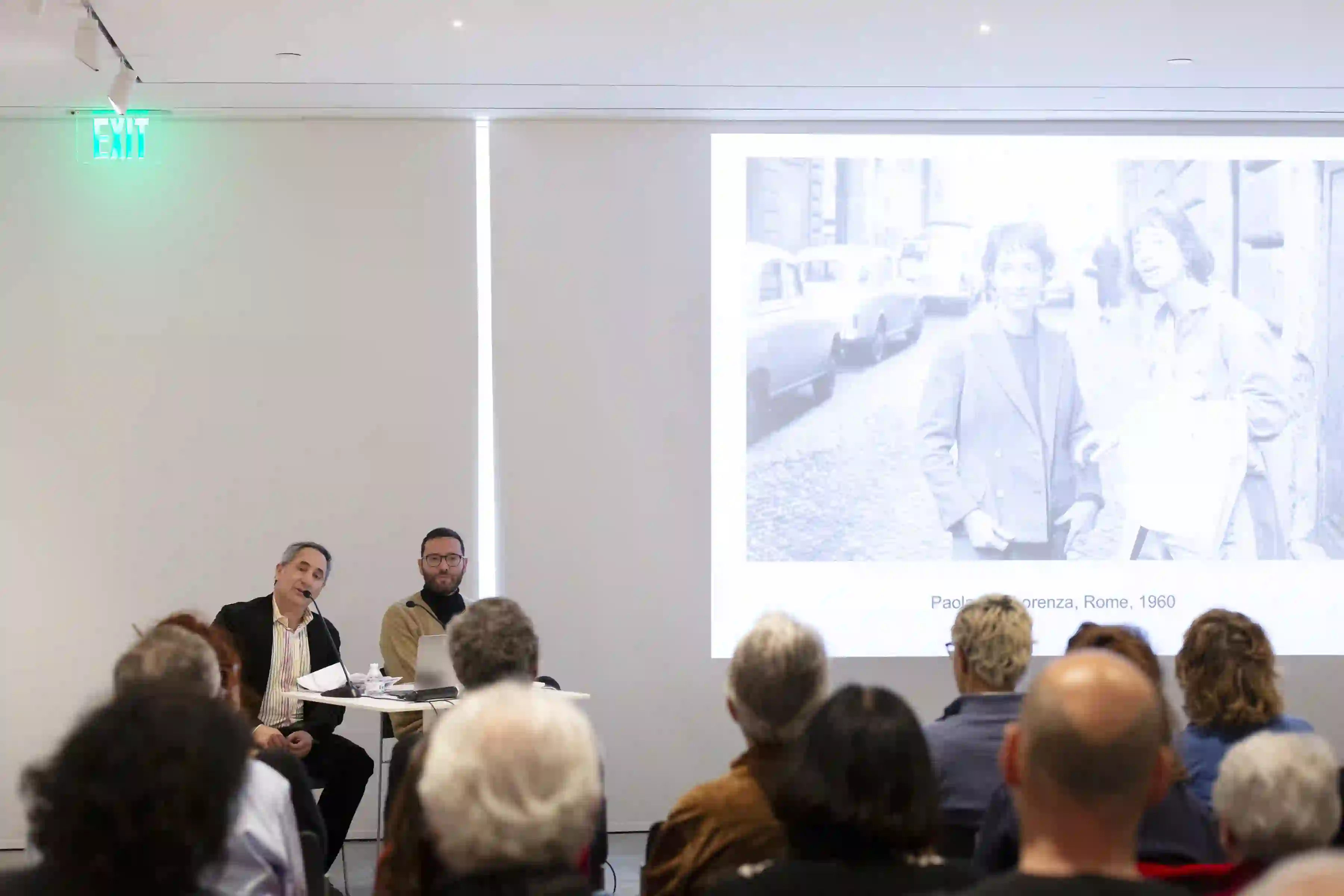
The program was a thought-provoking journey into the profound artistic legacy of Paola and Lorenza Mazzetti, offering a unique perspective on resilience, memory, and the enduring power of creativity in the face of adversity.
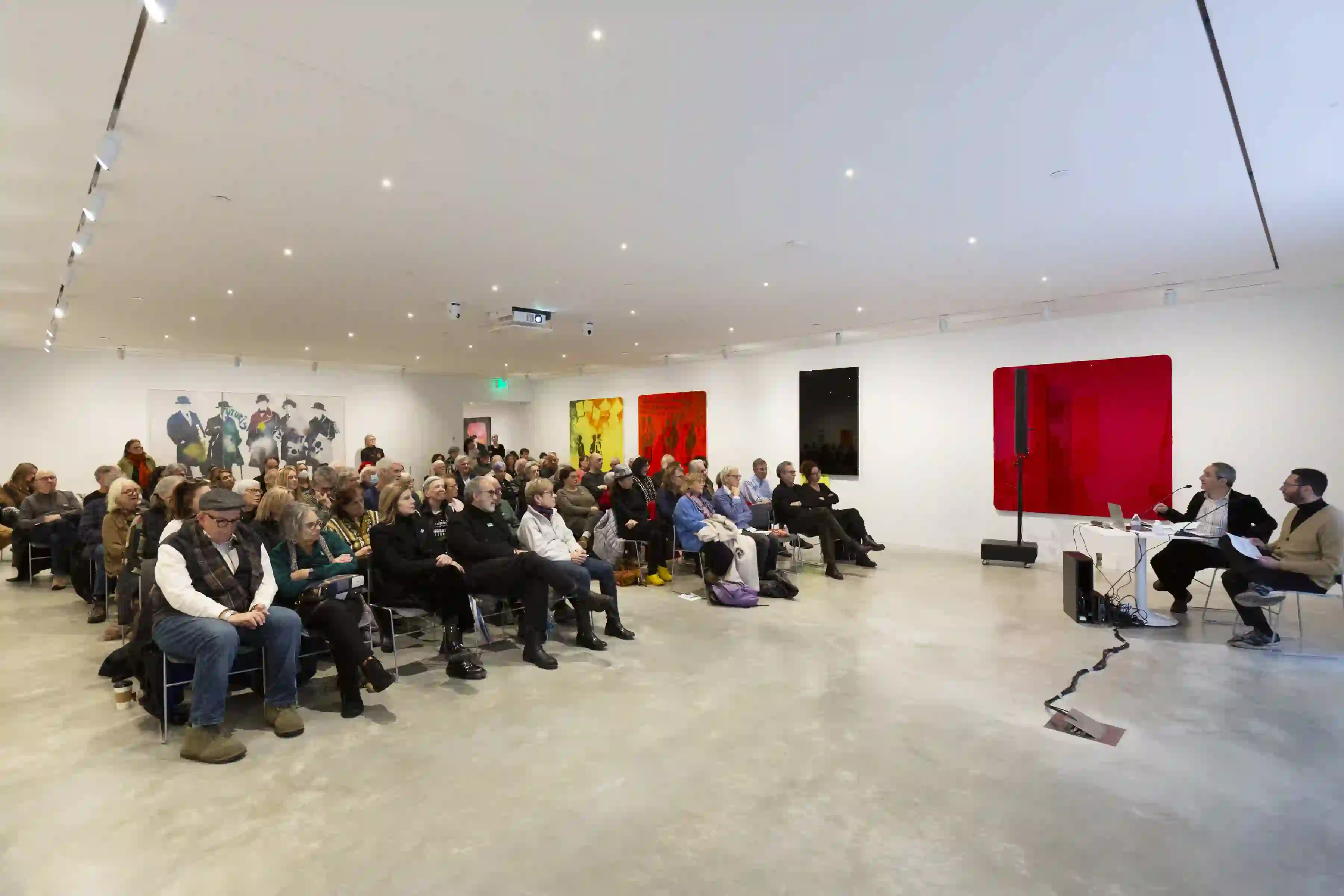
About Paola and Lorenza Mazzetti
Paola and Lorenza Mazzetti were born on July 26, 1927, in Rome, Italy, into a life marked by both tragedy and a remarkable journey that left an indelible mark on the realms of cinema, literature, art, and design.
Their mother, Olga Liberati, passed away shortly after their birth, leaving their father, Corrado Mazzetti, to care for them. Overwhelmed by the responsibility, Corrado entrusted the girls to his sister Nina Mazzetti and her husband Robert Einstein, who took on an informal role as adoptive parents to Paola and Lorenza.
In August 1944, German forces arrived at the Einstein villa, located near Florence, in search of Robert, the cousin of the renowned scientist Albert Einstein. Albert had fled Germany for the United States at the rise of Nazism, embodying a stark contradiction to Hitler’s racist ideologies through his fame and prestige. Unable to locate Robert, who had sought refuge in the countryside surrounding the villa to evade the Germans, they murdered his aunt Nina and her two daughters, sparing only Paola and Lorenza because they weren’t Jewish.
Lorenza Mazzetti, a multifaceted creative force, left an enduring legacy in the world of cinema, literature, and art. Her cinematic journey began with her thought-provoking and critically acclaimed short films, notably K (Metamorphosis) and A Country Doctor, which drew inspiration from the stories of Franz Kafka. Her creative vision expanded into the medium-length film Together, which garnered recognition at Cannes and received the prestigious mention au film de recherche.
During the 1950s in London, Lorenza co-founded the groundbreaking Free Cinema movement alongside Lindsay Anderson, Tony Richardson, and Karel Reisz. Her films continued to circulate in avant-garde circuits and were honored at exhibitions like the Free Cinema exhibition in Porretta Terme, Bologna, in 2010. The British Film Institute has recently restored the films that Lorenza made in London, and produced a DVD box set entitled the Lorenza Mazzetti Collection containing three short films and a new documentary about the artist, by Brighid Lowe.
Beyond cinema, Lorenza ventured into theater, founding the Puppet Theater in Rome, writing, and painting. Her work has been exhibited in international institutions in both solo shows and with her sister.
Lorenza’s sister, Paola, embarked on a creative journey in art and psychoanalysis. She co-founded and directed the Galleria d’Arte Contemporanea in Florence in 1953, a platform where the works of Cy Twombly and Robert Rauschenberg were first introduced to Italy. Paola was an active participant in the Concrete Art movement in Milan. Her art was exhibited in prestigious locations, including Acqua Art Gallery, Terracina (2018) and Il museo del Louvre in Rome (2019). Her last solo exhibition was held at Palazzo Sartorio in Rome in 2020. Like her sister, Paola was a prolific author.
Paola’s artistic pursuits took an intriguing turn as they intertwined with her practice as a psychotherapist. She developed her own unique approach to group therapy, ingeniously combining techniques from Jungian psychology, art, and Gestalt therapy. This innovative method was inspired by the pioneering work of Ernest Bernhard, Dora Kalff, and Barrie Simmons, who were her mentors.
Lorenza died in Rome 2020 and Paola in 2022.
About Alessandro Cassin
Alessandro Cassin is a freelance journalist and Deputy Director of Centro Primo Levi. Cassin began working in experimental theater and was awarded the Premio Ruggero Rimini 1989, Florence, for Il Presidente Schreber. He has been a cultural reporter for publications including L’Espresso and Diario and is a contributor to The Brooklyn Rail. His book Whispers: Ulay on Ulay won the 2015 AICA Netherlands Award. In 2017, Cassin conceived Laurence Butch Morris’ volume The Art of Conduction edited by Daniela Veronesi (Karma). In 2021 wrote and directed The Scandal of the Imagination, a film on the life and work of Aldo Braibanti. He curated After Images: The murder of the Einstein Mazzetti Family: Visual Resonances, photographs by Eva Krampen Kosloski, at the Memoriale della Shoah, Milan, 2024.
About Davide Spagnoletto
Davide Spagnoletto is a PhD candidate in Historical-artistic Studies at Università Roma Tre. His doctoral research is dedicated to Jewish artists in Italy from emancipation to the birth of the state of Israel. Davide received a degree in architecture from La Sapienza University in Rome and continued his studies at the School of Specialization in Historical-Artistic Heritage at the University of Macerata with a thesis on the collection of Toti Scialoja and Gabriella Drudi, which reconstructs their relationships with several Italian and American artists. He collaborated with the Jewish Museum of Rome where he co-curated Roma 1948. Italian Art towards Israel (April-October 2023). His recent publications cover the relationship between sculpture and architecture in the entrance to the Vatican Museums created in 1932 (Bollettino dei Monumenti Musei e Gallerie Pontificie, 2022), as well as the correspondence between Corrado Cagli and Amelia Della Pergola and Anna Laetitia Pecci Blunt (Edifir, 2022). Currently Davide is research fellow at the Center for Italian Modern Art in New York.
About Centro Primo Levi
Centro Primo Levi is a New York based organization inspired by the humanistic legacy of writer and chemist Primo Levi, who survived Auschwitz and became a fundamental reference in the discourse on history and memory in modern societies. CPL fosters education and debate on Primo Levi’s work and the history of Italian and Mediterranean Jews. Topics discussed in our public programs and academic seminars are disseminated through our online monthly Printed Matter and publishing endeavor, CPL Editions. The Center works closely with many organizations, including the New York Public Library, NYU Casa Italiana Zerilli Marimò, The New School, Columbia University, CUNY, and the Hebrew University of Jerusalem, CENTRA Genova, and the Center for Contemporary Jewish Documentation in Milan.
